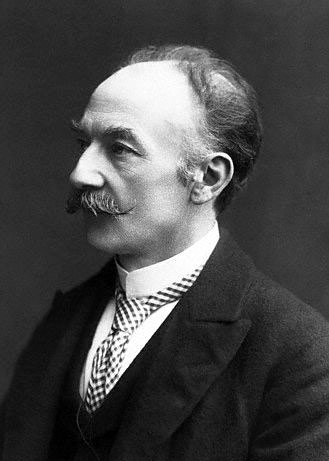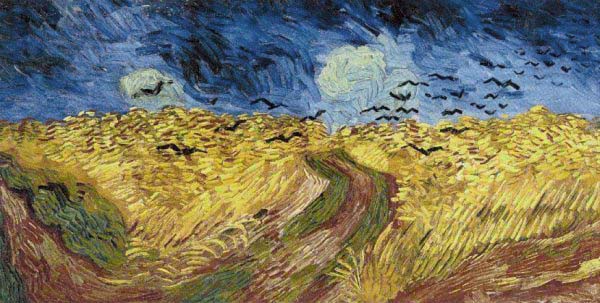
"During these last decades the interest in professional fasting has markedly diminished. It used to pay very well to stage such great performances under one's own management, but today that is quite impossible. We live in a different world now."
Kafka, "A Hunger Artist"
Of all issues perhaps obesity best embodies the complex, perhaps unfathomable relations between the "willing spirit" and the "weak flesh," as the saying goes; this is all the more true now as obesity, as compared to drug or even alcohol problems, has affected a large fraction of the population. This week's New England Journal of Medicine features a telling large-scale diet study, with an accompanying editorial (the latter is brief and particularly worth reading for general interest).
The study, conducted by Frank M. Sacks, M.D. et al, followed 811 adults over two years and looked at the weight loss resulting from diets containing varying ratios of protein, fat, and carbohydrates. It was an intensive program involving relatively affluent and enthusiastic adults as participants and experienced nutritionists and other weight-loss experts who provided counseling and support.
Unsurprisingly, subjects did not uniformly comply with the dietary ratios and caloric guidelines, but even so the study concluded that the protein/fat/carbohydrate breakdown was not a significant predictor of weight loss (a result that in a rational world would end a thousand fads, but in the real world will have little effect on the weight loss industry). Among the impressive 80% who completed the study, average weight loss at six months was 6 kg (7% of starting body weight), but the weight crept back slightly such that average loss at two years was 4 kg (about 9 pounds of course). The most significant predictor of success? Attendance at counseling and support meetings; in other words, motivation matters.
While 9 pounds is better than nothing, the discouraging overall conclusion (corroborated by many previous weight loss studies) is that on average, diets do not work. Indeed, in the editorial Martijn B. Katan, Ph. D. writes, "Evidently, individual treatment is powerless against an environment that offers so many high-calorie foods and labor-saving devices," and he goes on to emphasize community prevention initiatives that may, barring bariatric surgery, be the only viable intervention. However, "on average" is important, because if one considers that many subjects lost no weight at all, a number of them lost a substantial amount and did keep it off for two years.
As a general philosophical point, it seems reasonable to conclude that those suffering from obesity, somewhat like those in thrall to substances of various kinds, are not (yet) sufficiently motivated to change their behavior. This to me seems like a statement of psychological fact, and is not meant to be remotely disparaging. It is not to say that they are "weak," that they are "happy" about their obesity or that they don't want (at all) to change their dietary and exercise patters; it is merely to say that these motivations are not sufficiently vigorous to change behavior, or they conflict with other motivations. The biochemistry of weight loss is not hard--reduction of caloric intake and increase of caloric expenditure beyond a certain point will result in weight loss, as surely as an apple falls from a tree; it is the psychology of weight loss that is hard.
We increasingly know from evolutionary psychology that the biological hurdles are high for dieters--we are wired to find fats and carbohydrates highly reinforcing, and they are abundantly available in contemporary environments. We are similarly wired to conserve energy and avoid unnecessary exertion. Versus these factors, the disincentives of obesity, except in its most morbid forms, are somewhat abstract and distant; the health effects are often years off, and the social stigma of obesity is often surmountable and may even be decreasing as obesity becomes less uncommon. And while I don't mean to psychopathologize obesity or to make blanket statements, in some cases that problems with self-esteem may curtail the emotional reward of successful weight loss.
Also, we know that diets are much easier in the short term than in the long term. The improvements in physical well-being and appearance that accompany dieting tend to be subtle and incremental. Someone who can stop abusing alcohol or cocaine may feel remarkably better within days, whereas a dieter may not feel or look significantly different for months.
As mentioned, the editorial concludes that once we talk about the treatment of obesity, as opposed to its prevention in the first place, the battle is already mostly lost. At this point that may be true in a general epidemiological sense, but I keep thinking about those few who do get it off and keep it off. The point is not at all that they are "better" or "stronger" than anyone else; rather, in the context of their life narratives their resolve exceeded a critical point because the payoff somehow became worth it to them.
I don't know that there is a simple recipe (so to speak) for getting to that point, although a recent local news story I saw floated the idea of higher insurance premiums for obese state employees (as well as smokers). It would be a bit disheartening if that made the difference, but that's because I'm more of an existentialist than a behaviorist by nature. The means shouldn't matter.












